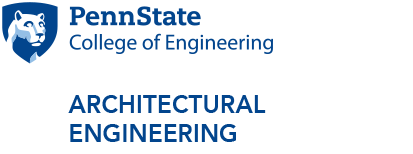Journal Articles
- Titus Reed, Nichole M Wonderling, John Mauro and Juan Pablo Gevaudan, 2024, "Effect of relative humidity on the interlayer spacing of phosphate intercalated Mg, Al layered double hydroxide (hydrotalcite-like) crystals", Journal of the American Ceramic Society, e20178
- Matthew Hollingham, Yi Xiang, Titus Reed and Juan Pablo Gevaudan, 2024, "OpenHW3–An open-source, low-cost temperature-controlled orbital shaker", HardwareX, 19, (e00570)
- Titus Reed, John Mauro and Juan Pablo Gevaudan, 2024, "Influence of phosphates on phase formation in alkali-activated MgO-Al2O3-SiO2-P2O5 cements", International Journal of Ceramic Engineering & Science, (e10232)
- Bo Wu, Juan Pablo Gevaudan, Yi Xiang, Jiankang Xu, Xue Ma and Yuxiang Li, 2024, "Novel insights into the amorphous feature of granulated blast furnace slag-supplemented magnesium potassium phosphate cement and its effect on bulk properties", Construction and Building Materials, 425, (135958)
- Juan Pablo Gevaudan, Yousra Timounay, Leonhard Mayrhofer, Mohammad Zarshenas and Michael Moseler, 2024, "How does the pore solution chemistry influence the passivation of reinforced alkali-and salt-activated slag materials?", Journal of the American Ceramic Society, 107, (3), pp. 1625-1635
- Jonathan Broyles, Juan Pablo Gevaudan, Michael W Hopper, Ryan L. Solnosky and Nathan Brown, 2023, "Equations for early-stage design embodied carbon estimation for concrete floors of varying loading and strength", Engineering Structures, 301, (117369)
- Goncalo Duarte, Jose Pinto Duarte, Ali M Memari, Nathan Brown and Juan Pablo Gevaudan, 2023, "Towards a model for structural performance in concrete printing based on buildability and toolpath design", Journal of Building Engineering, 69, (106325)
- Reza Homayoonmehr, Ali Akbar Ramezanianpour, Faramarz Moodi, Amir Mohammad Ramezanianpour and Juan Pablo Gevaudan, 2022, "A Review on the Effect of Metakaolin on the Chloride Binding of Concrete, Mortar, and Paste Specimens", Sustainability, 14, (22)
- Juan Pablo Gevaudan, Zoey Craun and Wil V. Srubar, 2021, "Sulfuric acid degradation of alkali-activated metakaolin cements supplemented with brucite", Cement and Concrete Composites, 121
- J. Osio-Norgaard, A. N. Aday, X. Chen, S. L. Williams, Juan Pablo Gevaudan and W. V. Srubar, 2021, "Silica-modifying chemical admixtures for directed zeolitization of metakaolin-based alkali-activated materials", Cement and Concrete Research, 142
- Matthew Bedeaux, Juan Pablo Gevaudan, Bimala Lama and Wil V. Srubar, 2021, "Atomic structure and phase assemblages in novel M-(N)-A-S-H materials", Cement and Concrete Research, 142
- Rebecca Napolitano, Wesley Reinhart and Juan Pablo Gevaudan, 2021, "Smart Cities Built with Smart Materials", Science, 371, (6535), pp. 1200-1201
- Qing Li, Xinyuan Li, Kai Yang, Xiaohong Zhu, Juan Pablo Gevaudan, Changhui Yang and Muhammed Basheer, 2021, "The long-term failure mechanisms of alkali-activated slag mortar exposed to wet-dry cycles of sodium sulphate", Cement and Concrete Composites, 116
- Juan Pablo Gevaudan, Briana Santa-Ana and Wil V. Srubar, 2021, "Iron mineral admixtures improve the sulfuric acid resistance of low-calcium alkali-activated cements", Cement and Concrete Composites, 116
- Juan Pablo Gevaudan, Jaqueline D. Wallat, Bimala Lama and Wil V. Srubar, 2020, "PVA- and PEG-assisted sol-gel synthesis of aluminosilicate precursors for N-A-S-H geopolymer cements", Journal of the American Ceramic Society, 103, (2), pp. 859-877
- Juan Pablo Gevaudan, Zoey M. Craun and Wil V. Srubar, 2019, "Using Calcined Waste Eggshells to Remove Sulfate in Nonpotable Concrete Mixing Water", Journal of Materials in Civil Engineering, 31, (6)
- Juan Pablo Gevaudan, Alejandro Caicedo-Ramirez, Mark T. Hernandez and Wil V. Srubar, 2019, "Copper and cobalt improve the acid resistance of alkali-activated cements", Cement and Concrete Research, 115, pp. 327-338
- Jorge Osio-Norgaard, Juan Pablo Gevaudan and Wil V. Srubar, 2018, "A review of chloride transport in alkali-activated cement paste, mortar, and concrete", Construction and Building Materials, 186, pp. 191-206
- Juan Pablo Gevaudan, Kate M. Campbell, Tyler J. Kane, Richard K. Shoemaker and Wil V. Srubar, 2017, "Mineralization dynamics of metakaolin-based alkali-activated cements", Cement and Concrete Research, 94, pp. 1-12
Conference Proceedings
- Juan Pablo Gevaudan and Susan A. Bernal, 2021, "Chloride-induced Corrosion of Steel Reinforcement in Alkali-Activated Slag/Metakaolin Blended Concretes"
- Juan Pablo Gevaudan, Jorge Osio-Norgaard and Wil V. Srubar, 2019, "Alternative cements: Recent developments and future directions", pp. 294-308
- Juan Pablo Gevaudan and Wil V. Srubar, 2017, "Energy Performance of Alkali-Activated Cement-Based Concrete Buildings", pp. 311-323
Other
- Jonathan Broyles, Nathan Brown and Juan Pablo Gevaudan, 2023, "A compiled dataset of ready-mix concrete Environmental Product Declarations for life cycle assessment", Data in Brief, 52, (109852)



